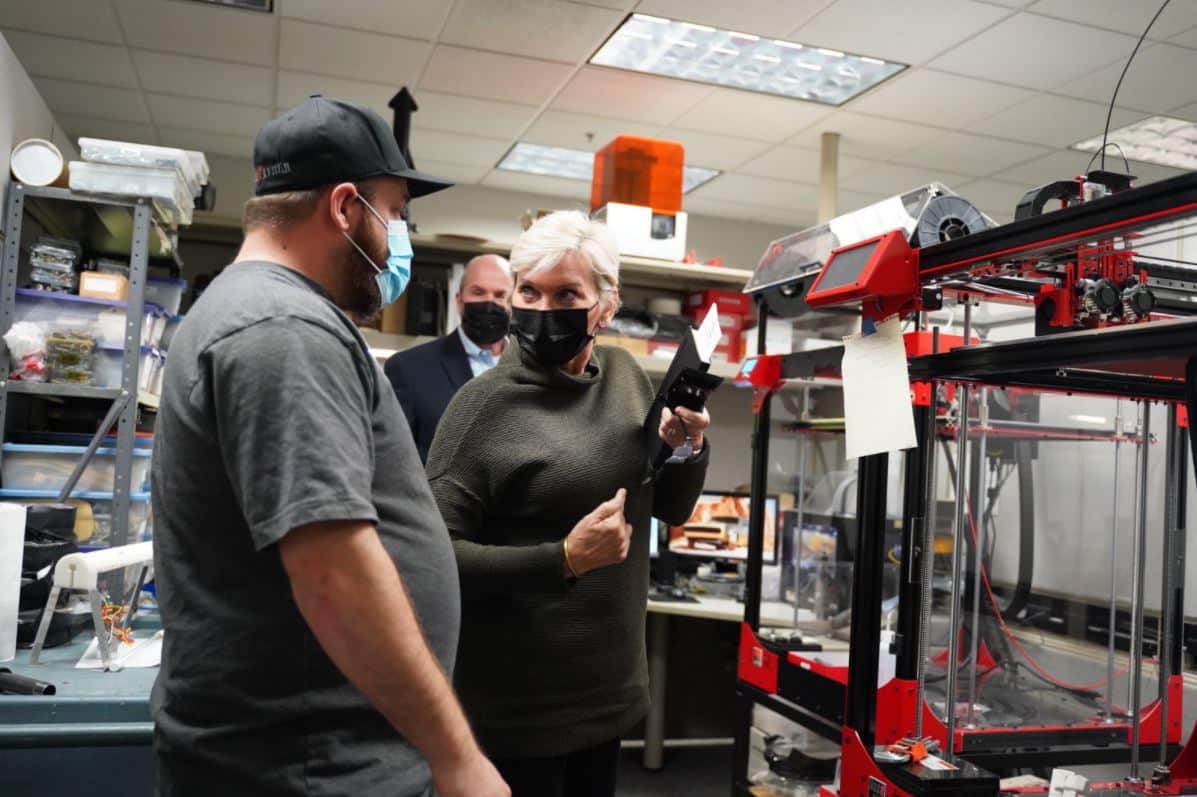Buy Clean: for US Workers, Industry and the Environment
COMMENTARY

Did you know that the United States government is the world’s biggest spender? As we transition to a clean economy, federal agencies should be leveraging their enormous purchasing power to advance our national goals, like cutting climate pollution, bolstering the competitiveness of U.S. industry and creating good-paying jobs for U.S. workers.
The industrial sector accounts for 30% of U.S. greenhouse gas emissions, making it the largest source of emissions when factoring in electricity use. But the solution is cleaner manufacturing, not less manufacturing. And if cleaner is better, American manufacturing wins — hands down.
The fact is that industrial competition with countries that have weaker labor and environmental standards than America is one of the main factors for why hundreds of thousands of manufacturing jobs have migrated overseas. As a result, the United States is “importing” even more embodied emissions than we would have produced if we manufactured those same goods at home. We import 1.4 gigatons of embodied carbon per year, which is roughly the same amount of climate pollution made by all factories in the United States combined.
That’s where Buy Clean comes in. The BlueGreen Alliance, along with its union and environmental partners, designed this initiative to use the government’s vast purchases of construction materials for public infrastructure projects to create demand for clean manufacturing. Buy Clean essentially says that when a local, state or federal government uses taxpayer money to purchase materials like steel and concrete for bridges, highways and public buildings, they should ask manufacturers to report and limit the emissions that go into making those materials.
Done right, Buy Clean is a win-win for our climate goals and for U.S. workers, as American factories often are already among the cleanest in the world. For example, U.S. steel mills are, on average, the cleanest among the world’s largest steel producers. Without Buy Clean, U.S. government agencies often purchase infrastructure materials from the lowest bidder. This practice risks outsourcing U.S. tax dollars to overseas manufacturers that exploit workers and dump pollution. Buy Clean aims to level the playing field by rewarding the tens of thousands of workers in U.S. factories that are cutting emissions while making the raw materials for our bridges and buildings. Policies like Buy Clean that incentivize the purchase of low-carbon goods can help U.S. steel manufacturers capture a greater share of a $5.4 trillion market through 2050, mostly by meeting more of our own country’s demand.
First passed by California in October 2017, Buy Clean has since expanded to other states — with Colorado and Oregon passing Buy Clean laws for their own infrastructure investments. And now more states are prioritizingefforts that support the procurement of cleaner goods in their own state-funded projects through the recently established Federal-State Buy Clean Initiative.
The Biden administration has made Buy Clean the official policy of the U.S. federal government, establishing the first-ever Buy Clean Task Force. Implementation will be supported by funding to help manufacturers track and disclose the embodied emissions of their products ($350 million) and enable federal agencies to purchase cleaner infrastructure materials ($5 billion). This funding is complemented by historic supply-side investments to improve emissions-reduction technologies and processes through tax credits ($10+ billion) and grants ($6.3+ billion). Just this month, the Department of Energy published its Funding Opportunity Announcement for industrial decarbonization grants, which will help make U.S. manufacturers more competitive in the growing marketplace for low-carbon goods and add to the more than 800,000 manufacturing jobs already created by the Biden administration.
This unique mix of state and federal policies has brought together a diverse group of allies. The BlueGreen Alliance and Third Way have engaged in a yearslong partnership to assemble thought leaders that can shape Buy Clean for workers and create good-paying jobs for middle-class families. Leading companies, labor representatives and the nation’s top climate advocates have proven they can work together with policymakers to make Buy Clean a key feature in the new clean economy. Our communities deserve good-paying jobs and a clean environment — let’s deliver both.
Jason Walsh is the executive director of the BlueGreen Alliance.
Josh Freed is senior vice president for the Climate and Energy Program at Third Way.
On Thursday, March 30, at 1 p.m. ET, BGA and Third Way will host a summit, Buy Clean America: Building a Better Future for Our Workers, Industry, and Environment, to continue this important discussion. You can register for the event here.






















